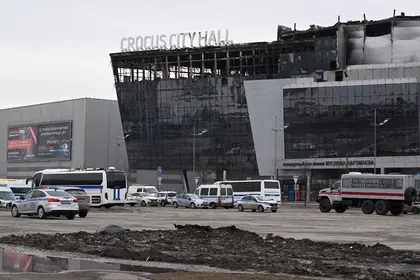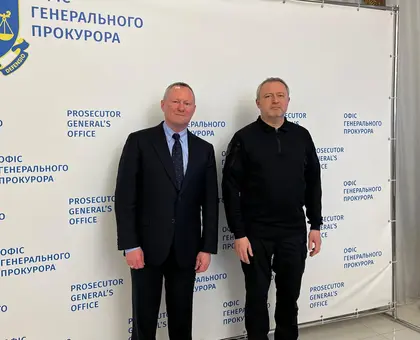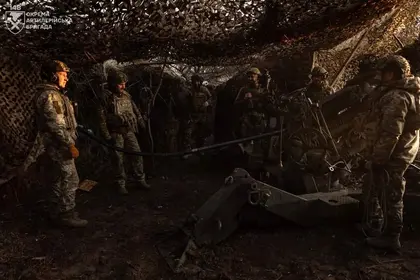Council of Europe’s High Commissioner’s findings
According to a press statement issued by his office, the Council of Europe Commissioner for Human Rights Michael O’Flaherty carried out a visit to Ukraine from April 23-25.
JOIN US ON TELEGRAM
Follow our coverage of the war on the @Kyivpost_official.
“This was his first visit to a member state since taking up his post on 1 April. With the current human rights landscape in Europe being dominated by Russia’s war against Ukraine, the visit was an opportunity for the Commissioner to gain a deeper understanding of the human rights situation. Through dialogue with the authorities and other partners, he identified areas where he can help to advance the protection of human rights in the country.”
“The scale of continuing serious violations of human rights of the people living in territories of Ukraine under Russian occupation” was identified as being “of great concern to the Commissioner” as are “reports of serious human rights abuses, including torture, committed against Ukrainian prisoners of war and civilians detained in the Russian Federation.”
The Commissioner “paid particular attention to the human rights situation of Ukrainian children, including those transferred to Russia and Belarus, those residing in areas of Ukraine temporarily occupied by Russia, as well as those living in government-controlled territory.”
According to the statement, “The existence of a vibrant civil society in Ukraine, representing a diversity of ideas and unique skills, was a source of inspiration for Commissioner O’Flaherty. “Civil society actors should be consulted by the Ukrainian authorities in all public decision-making processes relevant to human rights throughout Ukraine, including on laws and public policies that affect the human rights of people in the temporarily occupied territories of Ukraine,”

Russian Authorities Hold Over a Thousand Tajik Citizens at Moscow Airports
“The existential threat facing Ukraine today is at the same time the supreme challenge for the entire values-based human rights system on our continent,” the Commissioner concluded.
US State Department Report about Ukraine
The US State Department, in its annual country report on Human Rights Practices in 2023 published this month also emphasized the “pervasive war crimes, crimes against humanity, and other atrocities committed by members of Russia’s forces,” and their “constant attacks on civilians and civilian infrastructure.” It also stressed the “Significant human rights abuses committed by Russia’s forces in areas that were under Russian control” and the
But the State Department also noted “human rights issues involving Ukrainian government officials, although not comparable to the scope of Russia’s abuses…. Some of these human rights issues stemmed from martial law, which continued to curtail democratic freedoms, including freedom of movement, freedom of the press, freedom of peaceful assembly, and legal protections.”
Not surprisingly, the Ukrainian media focused on the references to issues connected with the restriction of freedom of the press during wartime, discussing what is acceptable or not.
The reports elaborates that “There were instances in which the government practiced censorship, restricted content, and penalized individuals and media outlets for reportedly criticizing measures taken by authorities or expressing pro-Russia views, through imposing financial sanctions, banning websites, and blocking television channels.”
“For example, the national TV Marathon – a rotating platform of channels that take the government line on war reporting – enabled an unprecedented level of control over primetime television news,” the report said.
“Investigative journalists critical of the government” have sometimes been the target of “negative social media campaigns, sometimes via government-friendly channels. Other practices continued to affect media freedom, in particular, self-censorship,” the report added.
Nevertheless, summarizing the situation in the sensitive sphere of freedom of expression during wartime, the US State Department report concluded: “With few exceptions, individuals in areas under Ukrainian government control could generally criticize the government publicly and privately and discuss matters of public interest without fear of official reprisal.”
You can also highlight the text and press Ctrl + Enter






